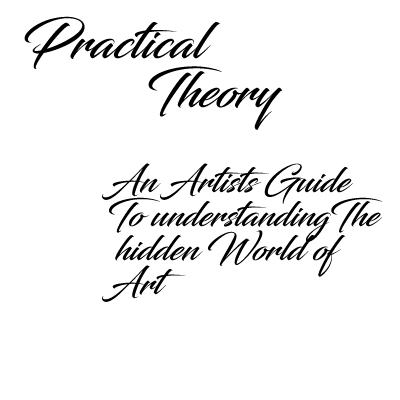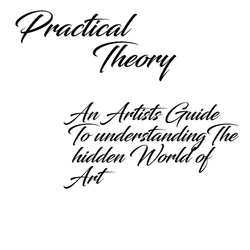Sign In
ClosePractical Theory E.O.D.S and the limits of available information by kemonocross

Practical Theory Executive order decision making skills and the limits of available information, how the curse of knowledge and conceptual awareness change the way we approach the creative process.
In order to be able to develop the internal and external resources required to succeed in any creative endeavor there are two things that every artists needs, exposure to different ideas and the experience that comes from working with them, and while the methods we will eventually employ varies wildly depending on our personalities, the fact that art is a transdisciplinary exercise means that we can utilize almost any medium we can imagine in order to develop the skills we need provided tangential learning is part of the process. Which is just one of the reasons why I will rarely if ever look to conventional sources of information for the concepts that I work with while writing because while I do consider cross-referencing, comparative analysis and fact checking to be important for verifying the validity of the information I acquire, everything that I ever needed to know in life I learned from playing video games. Well, and from reading enough books to fill an entire library but considering that some of the games I played contained their own glossaries and encyclopedias that covered everything from thermodynamics to existential questions about the nature of reality and the Unus Mundus theory the fact that I have near perfect recall in terms of episodic memory means I can make use of those experiences in a way that allows me to put them into practice while at the same time expanding upon them. So while some people pay an outrageous fortune for their education, mine involved playing video games, or in some cases watching other people play video games because once you get to a certain point in terms of developing a play style you inevitably run into different types of emotional and mental biases that inevitably affect the ethics of play. Or in other words, you run smack into the limits of available information.
Now the reason I use video games to illustrate this example is because in order to first affect the calculus of power one must either have a sense of agency or occupy a position of strength from which to bargain and video games have evolved now to the point where not only can those things be taken into consideration in terms of game design they can be used as an effective part of the evolving meta narrative. Which can be seen evidenced whenever we strip away the user interface in games and reduce the mechanics involved to simple metrics which means talking about event flags, logic trees, min/maxing, stat distribution, I could bore you with the nomenclature but the simple fact of the matter is that once we invest a virtual avatar with a sense of personhood we are not only relying on the extension of self in order to receive feedback, but the emotional investiture that is made means that the idea of possession enters into the equation as well. Now as for how that affects the creative process, well first, your characters aren't you, the game has just done a very good job at making you think they are, and second the moment we're forced to make any decision that potentially compromises our current or future position we will enter into a complex internal debate in terms of loss aversion, potential gains and once again, the limits of available information. Humans as a general rule don't like to make any decisions while under pressure from external forces as it involves not only a level of commitment they might not be willing to make, but limiting their potential options in the future. Now, when life was a lot less complicated then it is today by which I mean to say that the number of choices available to us have increased exponentially as walk into any grocery store and you'll be bombarded by a variety of different products many of which will fulfill the same function and then compare that to even as short a period of time as a hundred years ago and you'll begin to understand that no matter how much time that we invest in learning our craft, it simply isn't possible to know everything we need to know in order to make an informed decision every single time. So either we learn to shortcut the process and deal with the consequences that arise whatever they may be, or we learn to develop our executive order decision making skills by exposing ourselves to scenarios where action rather then deliberation is required and what better place to do that then in a virtual environment where the damage can either be limited or mitigated entirely. Don't try this kind of thing in reality folks as real life doesn't come with a reset button, well not one that I would recommend anyway. In other words, not only do video games have the ability to teach us a whole host of complex skills such as resource management and the finer points of economic theory, any game that has gambling in it is just screaming to be savescummed as the only real consequence is hey, you didn't get that outcome that you wanted, now it never happened, they can also allow us to explore the psychological and emotional costs inherent in making difficult decisions as there are times while writing or drawing where we will inevitably have to bear the burden of doing truly terrible things to imaginary cardboard robots for the entertainment of other people. I mean really now, have you ever stopped to consider what it costs just to build an imaginary robot out of cardboard? Those things don't exactly come cheap, and, artists for the ethical treatment of imaginary cardboard robots unite! Okay, but in all seriousness if you don't have the stomach to drop an imaginary cardboard robot into a pool of invisible acid then why did you even become an artist in the first place?
For real this time, see, I even used a break in the paragraph just to prove it, one of the things that artists have to learn to separate themselves from is the emotional transference that occurs when we humanize an object, note I said humanize not anthropomorphize as those are two completely different concepts, and the psychological phenomena that I'm referring to is what allows surgeons to operate on a patient as cutting into a living person makes people squeamish but an incision into the epidermis is a clinical distinction. Isn't learning wordplay fun everybody? Back to my point, one of the most thought provoking and emotionally disturbing decisions I've ever had to make in a video game came while playing Fallout New Vegas, which if you've never heard of isn't really important as the point of the example I'm about to give involves comparing two very different outcomes and the effect that they had on me as a player. To give you some amount of context in order to progress through the story certain flags must be activated and during the normal progression of the game the player will pass through a town where they first encounter the Legion, the Fallout universes equivalent to the Roman Legion complete with mass crucifixions and shall we say, less then pleasant ideology about profligacy and tyranny but hey, its just a video game right? Which is why when first offered the choice to either accept or reject the values embraced by that particular faction I picked the option that I felt best reflected my own personal stance on the issue, which prompted a response that basically amounted to, you may be able to stop some of us, but you'll never be able to stop the ideas that we represent. A very valuable lesson in the calculus of power which I then followed up by proceeding to prove that why yes, as a virtual avatar imbued with the power of near total immunity to bullets I could stop them by applying the same sort of violence that they themselves so enjoyed. To which the game proceeded to respond by sending larger and stronger groups of enemies after me because not only had I just taken out one of the major characters but I had also broken the event flag they were connected to and the punishment for such a transgression was to be trapped in a digital purgatory in which I would be hunted endlessly by said faction. Joy. However after starting the game over again, the only way to escape said purgatory, the next time I reached that event flag I made a completely different decision, this time instead of telling the Legion off to their faces I decided a more diplomatic approach was in order, this time I told them that why yes, wiping an entire town off the map and making an example of them through the use of mass beheadings while allowing a lone survivor to spread word of the Legion's might was indeed a splendid thing, where did they come up with such wonderful ideas? Okay that's not exactly how the game worded it but when you have limited dialogue options to work with internal monologue can make the game much more interesting and besides, I knew something that the characters in the game didn't know. I knew I was lying. And I was able to take advantage of that fact precisely because I already knew what the other possible outcomes of making a different decision would be, and that meant that any and all emotional considerations had already been resolved, which in turn allowed me to act in a way that served a greater purpose then satisfying a moment of pique or responding to the provocation presented by the narrative.
Which brings me to my next point about the limits of available information as the fact that playing through a video game a second time means being able to make different sets of decisions then the ones we did the first time around. You see many are the times I've played a game only to be defeated by some obscure mechanic or poorly implemented design decision only to come back to it a second time and find that once armed with new knowledge and information I was able to master those same mechanics and even exploit them in ways the creators probably never intended. Or to put it another way, once I was able to see how the decisions I was making in the early stages of the game affected the long term developments inherent in the strengths and weaknesses of my playstyle, I was able to make more and more effective decisions that then allowed my odds of achieving a successful outcome to increase. And if we apply that same idea to the creative process we can see how the ideas we work with can be structured in such a way that we are then able to eliminate hesitation, uncertainty, anxiety, confusion and doubt. After all, its only the first time we ever encounter an unfamiliar situation that we reach for an answer to the question, what do I do now? Every time after, we either already know the solution to the problem, or we have a way of figuring things out that doesn't involve dealing with the kind of crippling mental paralysis that many artists succumb to when they first start to write or draw. But simply being aware that these concepts exist isn't enough, as the curse of knowledge shows us, once we're aware of a thing, we can never return to the state in which we were previously unaware of it. We still have to practice making these kinds of decisions until we have explored all the potential avenues in order to be able to understand which one works best in a given situation as once we begin to acquire rigid or inflexible ways of thinking, we narrow the potential possibilities for action, and the only way to overcome those biases, is to measure ourselves against others in a way that forces us to be better then we already are, which is getting into concepts about rivalry and the nature of competition but that's a topic for a different day. So I'll leave off with a bit of the philosophy I encountered while researching Bushido. We train ourselves, not to defeat our opponents in battle, but so that when we do fight, we will never be defeated by our selves.
Sounds like words to live by to me folks, until next time, have a good day.
If you're enjoying the blog and you'd like to see more of it consider becoming a patron at http://patreon.com/user?u=3705901
Practical Theory, an artist's guide to understanding the hidden world of art, is a blog in which I'll be discussing all the weird, strange and semi-mystical things I've encountered while researching the emergent principles inherent in the transdisciplinary nature of art. So if you've ever wondered why art works the way it does, or if your just a fan of seeing if words can be weaponized in a way that can make people's head explode, check it out!
Submission Information
- Views:
- 1157
- Comments:
- 0
- Favorites:
- 0
- Rating:
- General
- Category:
- Literary / Other


